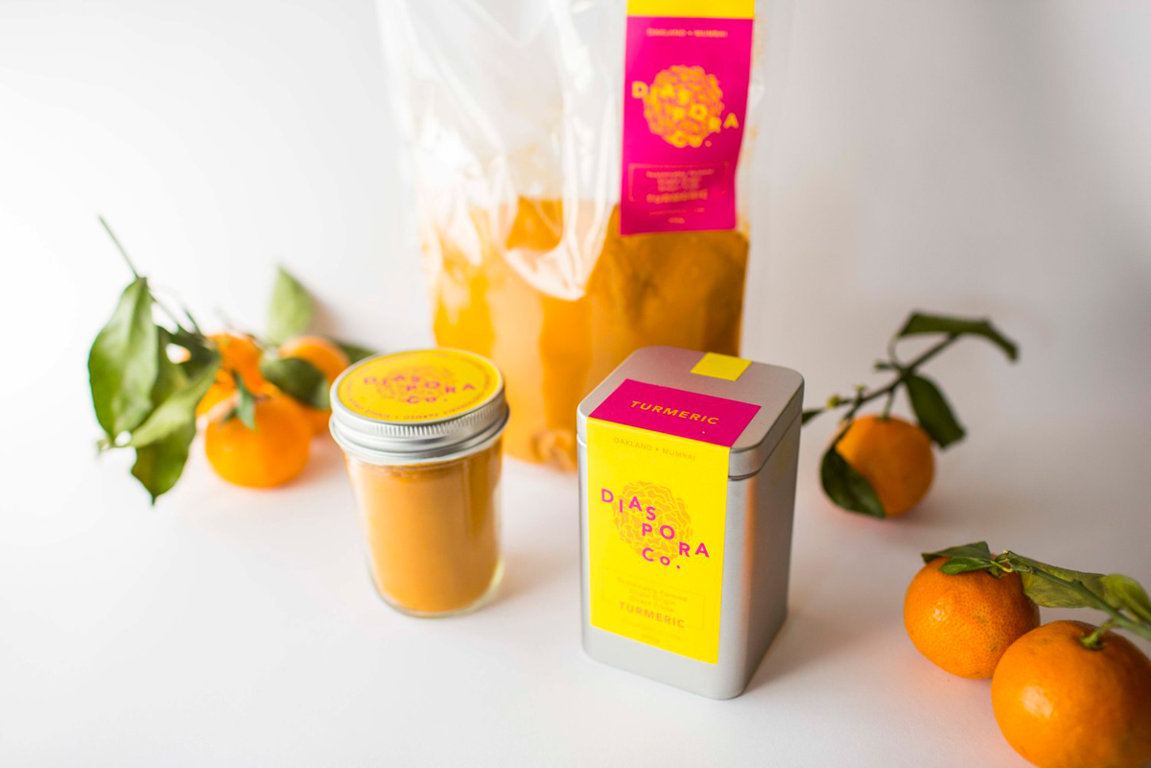
Big Dreams, Small Beginnings – Taking Turmeric to the World
by Yash Saboo March 7 2018, 3:08 pm Estimated Reading Time: 3 mins, 19 secsHaving a common cold and cough? Have a spoon of turmeric with warm milk. Does food lack colour? Add Turmeric to it. Turmeric, "the golden spice of life", has been used widely in India for ages and is well-known for its taste and medicinal benefits. Now, Turmeric Latte is a drink gaining popularity in the west. This is eerie. The drink's basic equation of ingredients, most importantly milk and turmeric, closely resembles haldi doodh (turmeric milk), a home remedy in our country. The fact that the turmeric latte is now being served as a "trend" in so many cafes all over the world, disentangled from its Indian roots, initially registered a sense of outrage for many in the Indian diaspora.
This also confused Sana Javeri Kadri, 24, who grew up in Mumbai but moved to California to attend Pomona College six years ago. Finding herself in a cultural terrain so far from what she knew in India, she had a mounting sense of frustration with turmeric's newfound status as a luxury product, race- and class-coded in a way that was at odds with the realities of the Indian farmers who harvested it so tirelessly.

Source : Civil Eats
She founded Diaspora Co. last August. You could consider it her way of addressing the injustice at the heart of turmeric's sudden stateside popularity. Diaspora Co. sells turmeric sourced directly from Vijayawada, a city in the southern Indian state of Andhra Pradesh.
The turmeric is harvested by a fourth-generation turmeric farmer named Prabhu. Mr. Prabhu’s turmeric is a curcumin-rich heirloom pragati strain that Javeri Kadri offers in tins and jars. Farmers like Prabhu often get the short end of the stick in the global spice trade, where supply chains can be so convoluted, with mark-ups so excessive that these farmers often see very little profit. One kilogram of turmeric in India is about US $0.35; in the States, Javeri Kadri explained, it can cost roughly $35.
As the American turmeric craze grew, Javeri Kadri wondered, “Why is turmeric important now? Why was it not important when thousands of Indian immigrants were eating it? She wanted to know who was benefiting from the spice’s newfound popularity.

Source : KQED
These questions stuck with Javeri Kadri. Then, in a flurry of events, her entire life changed. In late January, President Trump announced his travel ban. Concerned she would have trouble returning to India in the future, she bought a one-way ticket home. It was a chance to be closer to family, and an opportunity to learn more about the Indian spice industry.
Her plan was simple: to find the farmers who were growing turmeric and begin her own single-source spice company. Javeri Kadri hoped that in doing this, she would be able to connect with an ancient part of her culture, one she knew so little about.
When she first began to meet farmers, she found their turmeric was unusable due to the number of pesticides put in the crops. But eventually, she found a solution for it by finding a new proposition (she was on the brink of giving up).
From the farmer she works with to the people she employs, Javeri Kadri has been able to create the kind of business she longed for when she felt so lost in America. “I can use my business to champion for fellow women of colour and queers of colour,” she says. “It’s been so wonderful to use the business as a way to collaborate with and hire people that I feel aren’t getting the recognition they deserve.”
She hopes someday to expand her business beyond turmeric to other spices like vanilla, cloves, and cinnamon.
“The dream,” Javeri Kadri said, “is eventually there will be this kind of transparency around all spices. To be a radical spice company that is putting money in the hands of farmers but also feeding the world… Big dreams, big dreams.”




-173X130.jpg)

-173X130.jpg)
-173X130.jpg)


-173X130.jpg)
-173X130.jpg)